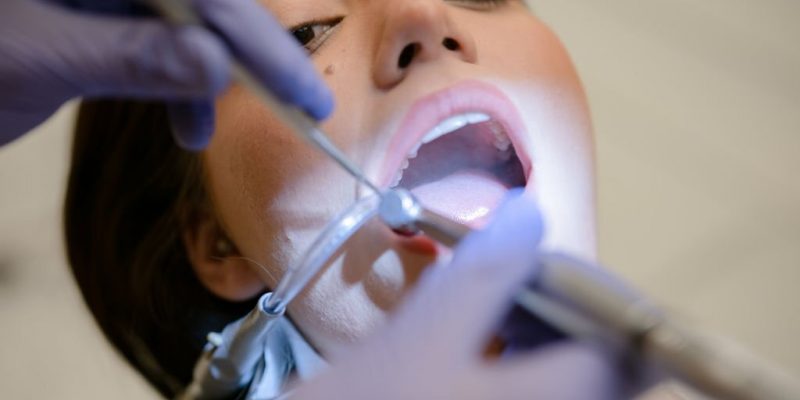A chipped tooth can ruin your smile aesthetics, making you more self-conscious about your facial appearance. But did you know there can be more serious concerns related to a chipped tooth? A simple tooth enamel chip may turn into something serious, such as tooth decay and cavities!
Sounds scary? The good news is you can prevent it! Even if it appears to be a cosmetic concern that affects your smile aesthetics, it may affect your dental health on a deeper level. If you don’t address a jagging tooth enamel on time, be ready to face the consequences, which may lead to a loss! Therefore, it’s wiser to immediately consult a dentist specializing in tooth fillings Jacksonville Texas, even if there’s a tiny chip in tooth.
Causes of Chipped Tooth
Some common factors leading to tooth chipping include –
- Tooth decay, such as cavities, which weaken the tooth structure
- Bad bites, such as overbite, underbite, crossbite, etc., cause clashes between your upper and lower jaws
- Traumatic injuries to the face include accidents, falls, or blows from sports balls or other objects.
- Bad oral habits, such as teeth grinding or clenching, etc., weaken the tooth, causing fractures
- Biting hard objects or foods like ice, hard candies, pens, etc.
- Improperly fitted silver fillings that are not compatible with your tooth’s enamel
Why Should I be Concerned About a Chipped Tooth?
A chipped tooth may result in one or more of the following consequences –
- Tooth sensitivity: Sadly, a jagged tooth can lead to tooth decay, which may gradually increase tooth sensitivity. Damaging teeth may show up the internal tooth nerves since the outer protective enamel is chipped off. Hence, you may have sensitivity to hot, cold, pressure, acidic, and sweet foods and drinks.
- Cuts in your mouth: A chipped tooth exposes sharp edges that can cause cuts in your mouth, including your tongue, cheeks, and gums. Sometimes, these wounds may be deep and painful, making your chewing and eating activities uncomfortable.
- Bacterial infection: The biggest enemy of dental health is bacterial infection, which occurs due to the accumulation of food particles over time. Since a fractured tooth often becomes difficult to clean thoroughly, there are higher risks of bacterial infections. Deep tooth chips may also cause internal damage, abscesses, and even painful toothaches, often requiring root extractions or root canals.
- Broken tooth: Even if you have a minor chip in your tooth, it is prone to further tooth breakage. That’s because the tooth fracture weakens the healthy tooth. Moreover, if you chew hard foods, this weakened tooth is open to gradual breakage. And as the saying goes, “A stitch in time saves nine” a damaging tooth requires even more extensive treatment procedures for repairing it rather than simply restoring a chipping tooth.
Is It Necessary to Treat a Chipped Tooth?
Even though you may not feel signs like tooth sensitivity or toothache, a chipped tooth should not be left untreated. It won’t take long for your broken tooth to collect bacteria, resulting in tooth decay. Your chipped tooth may collect food particles that are hard to remove, thus causing plaque and gradually leading to cavities.
So, the short answer would be a big ‘Yes’! You should see the dentist immediately, even if tooth fractures are minor. Because you never know what might have happened or whether there are any concerning internal damages. A chipped tooth has lost its strength and is prone to greater damages like breakages and deeper chippings.
When the chip is deep, it may reach the tooth pulp, comprising the connective tissue, nerves, and blood vessels. Once these suffer damage, these living tissues and blood vessels become infectious. As a result, this will lead to a gradual death. In short, to avoid tooth loss, you need to treat even minor tooth chippings.
Treatment for Chipped Tooth
The most common chipped tooth enamel treatment is that your Cherokee dentist will smoothen and polish the rough edges. Next, your dental team would use strong, tooth-colored dental bonding made of composite resins, used as tooth fillings to restore the tooth by filling the gaps. Since the bonding resembles your tooth’s natural shade, they render an overall natural appearance and function.
However, if the damage is severe, your dentist may restore your fragmented tooth with one or more treatment methods like onlays, crowns, or veneers. All these will restore your tooth’s normal function while preventing bacterial infection or inner tissue damage. And if the chipping affects your tooth pulp, your dentistry team may decide on treatments like tooth extraction or root canal.
Final Words
In a nutshell, if you wish to prevent chipped tooth decay or tooth loss, you should not delay treating your fractured tooth. Contact a certified Cherokee dentistry professional to help prevent further damage, such as infection or cavity, by restoring your chipped tooth on time. Now, it’s your responsibility to take care of your oral health and report dental issues as soon as possible! Don’t worry; tooth breakage is easier to treat in an early stage, so don’t avoid the dental clinic in your locality!

